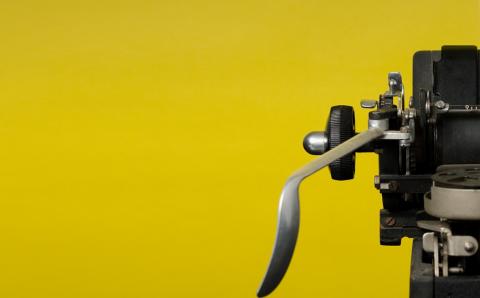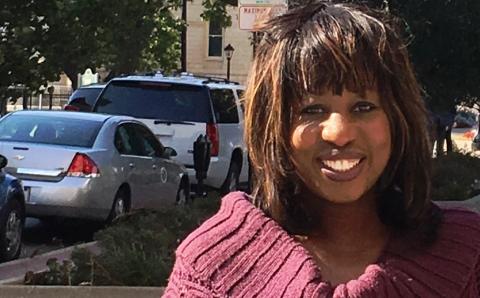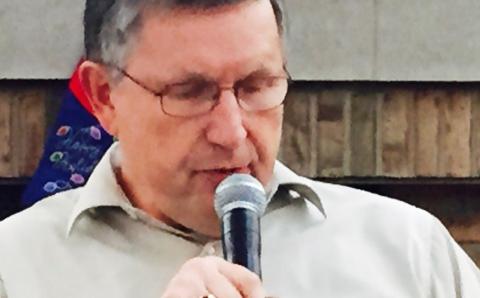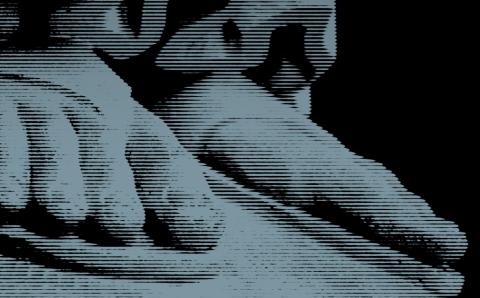We all know about the 2007-2008 financial crisis, but do we understand why it happened? Something about bad loans, mismanagement, banks going bust. Whatever. The little guy ended up paying in the end. But there must be more to it than that, right?
The Big Short uses comedy, first-rate actors, and creative flourishes to present a very complicated and, for the non-expert, potentially boring topic in an informative and amusing fashion.
The film focuses on three groups of investors who figured out, before anyone else, that a financial meltdown was about to happen.
Michael Burry (Christian Bale) is the quirky head of an investment fund. In his office—barefoot, dressed in shorts, tuned in to heavy metal—he pores over mortgage-based securities, that is, bonds made up of bundled mortgages. These bonds are rated as one of the most secure investments possible. A few mortgages might fail, but a thousand or more? Burry discovers, however, that many of the mortgages are, in fact, close to defaulting. Burry decides to “short” the market, that is, to bet against it. In other words, if the mortgage-based bonds fail, he will receive an enormous payout. The banks think he is foolish or deranged, and they gladly take his bet.
A second group of investors led by the brash Mark Baum (Steve Carell) gets wind of this “big short.” With the aid of Jared Vennett (Ryan Gosling), a slippery banker, Baum discovers that the entire market is based on a fraud, with loan officers, traders, and rating agencies casting a blind eye on risky “subprime” mortgages. While disgusted with the system, Baum also bets against the market.
The third group is made up of two young investors, Charlie Geller (John Magaro) and Jamie Shipley (Finn Wittrock), who also catch wind of the trade. Aided by Ben Rickert (Brad Pitt), a retired and reclusive Wall Street banker, the two manage to get in on the deal.
Directed by Adam McKay, who was behind the comedies Anchorman and Talladega Nights, The Big Short uses a strong ensemble cast to play for laughs while creating empathy. Steve Carell is particularly strong as the loud-mouthed trader burdened with a great family tragedy. Christian Bale is not only eccentric, but brilliant, unable to communicate meaningfully with his employees and investors.
Although these investors are really not heroes in the traditional sense, they are the only people who show any disgust with the pervading corruption and greed.
Based on a book by Michael Lewis (who also wrote the book behind the baseball film Moneyball), The Big Short often presents through subtitles definitions of complicated financial terms. And when the discussion gets very complicated, the plot cuts to an explanation by a celebrity such as the singer Selena Gomez or the chef Anthony Bourdain. I was reminded of satirical documentaries, like Morgan Spurlock’s critique of McDonald’s, Supersize Me. Some of the characters in this film are real, such as Michael Burry; for others, names have been changed or composite figures have been created. Such is the advantage of a comedy-drama over a comic documentary in terms of presenting not the facts but the truth of an event.
The language is very strong and gives the impression that investors trade chiefly in four-letter words. Add to that some scenes of partial nudity and crass behavior; this film is not for children.
Compared to other finance-related films such as Wall Street and The Wolf of Wall Street, however, The Big Short offers a less gratuitous and clearer condemnation of financial and moral corruption. While the film will make you laugh and help you understand the financial crisis, it will also make you cry for all the needless waste and suffering provoked by unbridled greed. (Paramount)
About the Author
Otto Selles teaches French at Calvin College, Grand Rapids, Mich., and attends Neland Avenue Christian Reformed Church in Grand Rapids.









